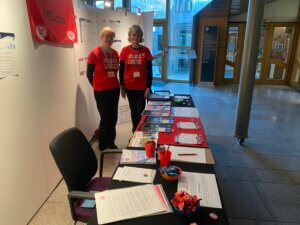Australian researchers have found abnormal activity in the brain which may explain problems with brain signalling in CFS.
South Australian and Queensland scientists examined 25 patients who met the International Consensus Criteria (although the paper refers to the illness as chronic fatigue syndrome) and 25 controls in the paper ‘Autonomic correlations with MRI are abnormal in the brainstem vasomotor centre in Chronic Fatigue Syndrome‘, published in March 2016’s NeuroImage: Clinical.
Barnden et al. monitored the heart rate and blood pressure from patients while they were reclined, asleep; and also while they were seated and awake. Heart rate was elevated in comparison to controls even when the CFS patients were asleep, and pulse pressure was reduced when the patients were sitting up — even though patients with diagnosed POTS were specifically excluded from the study. Moreover, depression and anxiety scores were correlated to pulse pressure: the higher the score for anxiety and depression, the lower the pulse pressure when seated upright.
The MRI was on a 1.5-T scanner. Grey matter and white matter volume, and T-1 and T-2-weighted spin-echoes were examined. Voxel-based morphometry was utilized to interpret the results. Statistically, corrections for multiple regressions were employed.
The study showed the vasomotor centre, midbrain and hypothalamus correlations were abnormal in CFS patients.
“The vasomotor centre and, through it, nuclei in the midbrain and hypothalamus play a key role in autonomic nervous system regulation of steady state blood pressure (BP) and heart rate (HR).
“We suggest that reciprocal connectivity between these regulatory nuclei is impaired, which in turn affects signalling to/from peripheral effectors/sensors.”
The authors say the study reveals patterns of abnormality that provide new insights into brain-body relationships in CFS and are consistent with a nerve conduction deficit in the brainstem/midbrain.
Irregularities in the autonomic nervous system can have devastating, wide-range effects:
“The autonomic nervous system (ANS) contributes to the control of arterial pressure, heart rate and contractility, gastric and salivary excretions, blood vessel dilatation/constriction, temperature, immune and many other functions. It… also return(s) sensory signals to the brain. The SNS and PNS both influence the enteric nervous system which controls gut activity” (Hall, 2011).





